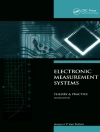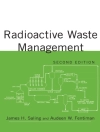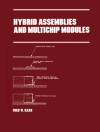Electronic waste, which includes everything from refrigerators to smartphones, is one of the world’s fastest growing waste streams. Often these items are simply discarded as new technology becomes available. A huge amount of electronic waste is generated globally and currently only around 20% of it is recycled. The complex mixture of materials and components within electronic waste makes it difficult to manage and many of these components can pose hazards to human health or the environment if not disposed of carefully.
There have been significant changes in the global approach to electronic waste management and the legislation around it since the publication of the first edition of Electronic Waste Management. This new edition provides an updated overview across the world as well as presenting new chapters on current issues in recycling and management of this waste.
This is an essential reference not only for those working in recycling and waste management, but also for those working in manufacturing and product development who wish to consider the full lifecycle of their products. It also provides valuable insights for policymakers developing more environmentally sound and sustainable systems and strategies for the management of electronic waste.
表中的内容
Introduction and Overview; Materials Used in Manufacturing Electrical and Electronic Products; A Circular Economy for Consumer Electronics; An Overview of Electronic Waste Management in the UK; Management of Electronic Waste in Africa; Electronic Waste Management in the Asia Pacific Region; Traceability of Electronic Waste Using Blockchain Technology; Electronics: A Broken Story about Production and Consumption; The Recycling of Lithium-ion Batteries: Current and Potential Approaches; Environmentally Sustainable Solvent-based Process Chemistry for Metals in Printed Circuit Boards; Plastics in Electronic Waste: Results from the Poly CE Project
关于作者
Roy Harrison OBE is Queen Elizabeth II Birmingham Centenary Professor of Environmental Health at the University of Birmingham. In 2004 he was appointed OBE for services to environmental science. Professor Harrison’s research interests lie in the field of environment and human health. His main specialism is in air pollution, from emissions through atmospheric chemical and physical transformations to exposure and effects on human health. Much of this work is designed to inform the development of policy.












